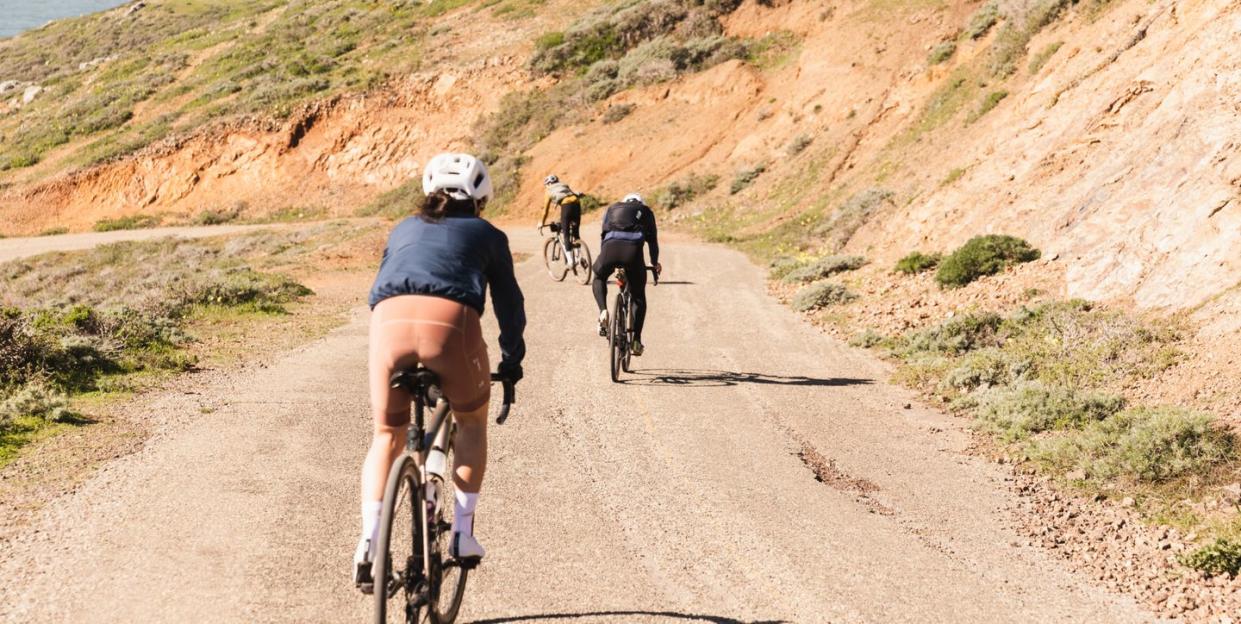Physical Activity Has Powerful Effects on Colon Cancer Risk, Research Suggests

"Hearst Magazines and Yahoo may earn commission or revenue on some items through these links."
A new study, involving more than 1,700 people, suggests that physical activity can prevent cancer recurrence.
With colon cancer numbers on the rise, particularly in young people, experts say exercise can also play an important role in lowering risk.
The link between regular physical activity and cancer prevention is a strong one, but does that connection still hold for people who’ve already had cancer? A new study in the British Journal of Sports Medicine suggests it does.
Looking at data from a cohort study on nearly 1,700 participants with stage III colon cancer, researchers compared results six years after treatment based on physical activity levels. For physically inactive patients, disease recurrence peaked within two years of treatment, but that result didn’t happen with physically active patients. Therefore, researchers concluded that activity may prevent, not just delay, cancer recurrence.
“The takeaway message is that physical activity continues to offer meaningful health benefits after developing a disease like cancer,” Justin Brown, Ph.D., director of the Cancer Metabolism Program at Pennington Biomedical Research Center at Louisiana State University, told Bicycling. “Developing a disease, particularly cancer, is often a moment when people take a step back to reevaluate their life, and physical activity can be an empowering health behavior to give people a stake in improving their probability for good health outcomes.”
In a previous study he led, published in Exercise and Sport Sciences Reviews, researchers found that among women who’d been treated for breast cancer, participation in physical activity after diagnosis was associated with a 24 percent reduction in disease recurrence and 45 percent reduction in early mortality. Among men and women with stage III colon cancer, the results were even more profound—a 40 percent reduction in disease recurrence and 63 percent reduction in early mortality. Notably, these associations still held true despite differences in demographics, treatment regimens, and tumor pathologies.
In terms of mechanism, Brown said research has shown that physical activity reduces circulating tumor cells and various factors stimulating cancer growth.
“With the recent study, it wasn’t surprising that physical activity is associated with a lower risk of disease recurrence and death,” he added. “What was surprising is that the biggest benefit to patients occurred very soon after they were diagnosed with cancer. This is important because it may give us clues about how physical activity is working biologically, and indicates that to reduce risk of disease recurrence, patients need to be active as soon after treatment as possible.”
What about physical activity for colon cancer prevention?
For those who haven’t had cancer, physical activity remains a major prevention strategy. That’s always been important, but it may be particularly crucial now, given recent prevalence trends.
A recent study published in Nature Reviews Clinical Oncology notes that a dramatic rise in cancers of the breast, colon, esophagus, kidney, liver, and pancreas began in about 1990 and has continued to be a concern since then. Colon cancer, specifically, has been increasing dramatically among those under age 50, which is what led to a change in screening recommendations, dropping the guideline for first screening to 45 years old.
However, that doesn’t mean you need to start being aware of colon cancer in your mid-40s. In fact, the boom in early-onset cancer has been alarming enough that oncologists are trying to push more prevention efforts for people in their 20s and 30s.
“It’s never too late, and never too early, to adopt cancer prevention habits,” the Nature Reviews lead author Tomotaka Ugai, M.D., Ph.D., researcher in the department of pathology at Brigham, told Bicycling.
“Physical inactivity has a significant impact on the rise of these early-onset cancers, and previous research indicates that the more activity you get, the more beneficial it is for your risk level,” he said. That doesn’t knock out risk completely, especially if you have genetic factors at play—however, even in that case, healthy habits can go a long way toward mitigating those factors, he said.
You Might Also Like

